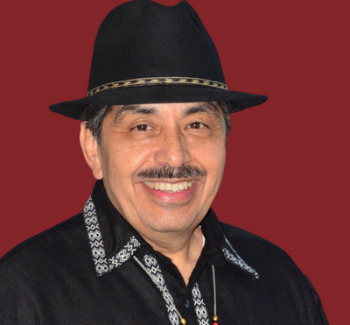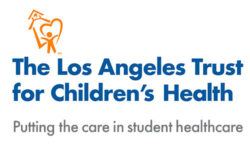Presentations have been uploaded to sessions where presenters provided permission to share materials.
Session I: 11:00 am-12:15 pm
Starting a School-Based Health & Wellness Center: For Health Partners
Health care agencies and community-based organizations that operate school-based health and wellness centers have specific considerations when it comes to providing care in a school setting, from ensuring robust billing practices to building effective partnerships. Learn about the steps and best practices to increasing access to care successfully.
Presenters: Amy Ranger, MPH, Director of Programs, California School-Based Health Alliance; Amy Blackshaw, MSW, Behavioral Health Project Director, California School-Based Health Alliance; Missy Nitescu, Chief Operating Officer, Northeast Valley Health Corporation
Starting a School-Based Health & Wellness Center: For Education Partners
Wellness Centers that are started and operated by education agencies are a growing trend that many communities across California are embracing. Hear about different successful models, how to engage partners effectively, and the best ways to keep services sustainable year over year.
Presenters: Sang Leng Trieu, DrPH, Consultant, California School-Based Health Alliance; Yesenia Ceballos, Wellness Counselor/Coordinator, Sierra High School; Hector Murrieta, Principal, Sierra High School; Aliea Coston, Head Counselor, Sierra High School, San Bernardino City Unified School District
Braiding Funding & Resources for Supporting Mental Health Services & Wellness Centers
As districts and school sites work to meet the needs of students in a whole child approach, there must be new and integrated strategies to braid and blend multiple funding sources. Join a deep dive into how districts and school sites can leverage multiple current and new funding sources to meet the needs of our children and youth through enhanced school-based health supports, including wellness centers.
Presenter: Michael Lombardo, Executive Director, Prevention Supports & Services, Placer County Office of Education
Advocating for School Health & Leveraging New State Funding
Governor Newsom and the California legislature authorized a number of new programs, starting in 2021, to support health care for children and youth, and many will have relevance for SBHCs and the students they serve. They include the Student Behavioral Health Incentive Program (SBHIP); Community Schools; and the broader Child and Youth Behavioral Health Initiative. Hear about these programs, how they are being implemented, and what you need to know to engage in local implementation. Learn how to apply lessons learned from state and local advocacy efforts to advance school-based health and wellness in your school and community, leveraging these new opportunities.
Presenters: Gabrielle Tilley, MPP, Senior Policy Manager, The Los Angeles Trust for Children’s Health; Lishaun Francis, MPP, Senior Director, Behavioral Health, Children Now
Fostering Safe & Supportive Environments for LGBTQ Students
Learn about California state laws that support lesbian, gay, bisexual, transgender, and queer (LGBTQ) and gender expansive students at school sites, key LGBTQ terms and definitions, and best practices for fostering safe and supportive environments for LGBTQ students.
Presenter: Schmian Evans, MDiv, MA, LGBTQ Programming Specialist, Oakland Unified School District
Integrating Male Involvement Services to Prevent Teen Pregnancy
Learn about the need to incorporate male involvement services to help prevent teen pregnancy. Hear about the success male involvement services have had in reducing teen pregnancy rates and helping adolescent males to find a sense of acknowledgement and purpose. Learn about practical strategies that support successful outreach and recruitment plans, create a safe space for learning and growth, and create community partnerships that honor male friendly services. Start the process of making a commitment to integrate male involvement services into your programs!
Presenter: Mario Ozuna-Sanchez, Senior Manager of Curriculum Training and National Initiatives, National Compadres Network
Innovative Youth-Centered Tech Resources for Sexual and Reproductive Health Services in Schools
Learn about some of the most innovative, youth-centered, tech-based health resources for adolescent sexual and reproductive health care. Presenters from UCSF and Essential Access Health will share the latest technologies, trainings, and communication tools you can use to enhance care at your school-based clinic.
Presenters: Emily Wasson, MPH, Senior Manager of Adolescent Health Programs, Essential Access Health; Cynthia C Harper, PhD, Professor, Obstetrics, Gynecology & Reproductive Sciences Director at UCSF-Kaiser Permanente Building Interdisciplinary Research Careers in Women’s Health (BIRCWH) and Director, Beyond the Pill Program, University of California, San Francisco; Kathleen Tebb, PhD, FSAHM, Professor Department of Pediatrics Division of Adolescent and Young Adult Medicine, UCSF Benioff Children’s Hospital, University of California, San Francisco
Session II: 1:30-2:45 pm
Ensuring Consent & Confidentiality in School-Based Health Care
The appropriate sharing of information between educational and school health partners is essential, both to effectively serve students and families and to ensure legal compliance. What are HIPAA and FERPA and how do they apply? When and how may schools share information with their health partners and vice versa? How can parents, schools, and providers share information to improve health and educational outcomes?
Presenter: Rebecca Gudeman, JD, MPA, Senior Director, Health, National Center for Youth Law
Adolescent Screening Visits & Clinical Health Coaching in a School Setting
How can school-based health and wellness centers implement a health coaching and population health screening model to ensure they are meeting the holistic needs of students? Come learn how one health care agency utilizes health educators in an innovative classroom and SBHC-based approach to familiarizing students with the SBHC and linking students to needed services. La Clínica de La Raza in Oakland has implemented health coaching and adolescent screening visits in all of its eight SBHCs, partnering medical providers with health educators and other staff to reduce barriers and bring high quality services to the larger school population. This workshop will discuss successes, lessons learned, and best practices for implementation.
Presenters: Emma Brenner-Bryant, Health Education Supervisor; Kevin Rodriguez Solis, Americorps Health Educator; Mariam Ghassemi, Americorps Health Educator; Jennifer Schlissel, Health Educator, La Clínica de La Raza
Honoring Grief in the Classroom
Join the School Crisis Recovery & Renewal project (an NCTSN Category II site) in tender conversation about grief and collective care in schools: from student death impact on school staff, to schools as the site of critical grief healing. Together, we will consider the question: What pedagogies and practices might support us in creating a more humanizing classroom and school culture to support safety, connection and healthy grieving for students after a crisis? Whether you work in, with or alongside school contexts, join us in generative discourse and reflective inquiry that examines what honoring grief in support of healing means for school settings as well as how we might encourage collective healing and pathways towards renewal by honoring our loss rather than ignoring it.
Presenters: Oriana Ides, MA, LPCCI, PPS, Field Coach, School Crisis Recovery and Renewal Project
Getting Ready for School Health Advocacy Day
Join us to prepare for advocacy visits with your legislators and policymakers during our School Health Advocacy Day on April 18. Learn what to expect during advocacy meetings, how to prepare your story and talking points, and get ready to advocate for school-based health care. This workshop will cover the basics of advocacy and provide you with a draft agenda for your meetings. You will also have plenty of time to practice so you feel relaxed and ready to speak up for school health and wellness!
Presenters: Marina Quintanilla, MPH, Advocacy Manager, California School-Based Health Alliance; Dina Mirmotalebisohi, Youth Board Member, California School-Based Health Alliance
RYSEing to the Challenge: Youth-Led Radical Inquiry Emphasizing Mental Health Support Needs in Schools
Learn about a YPAR (Youth Participatory Action Research) project called Education Justice Action Research (EJAR) that began in 2020 and centers the voices of students in a Bay Area school district. EJAR creates spaces in which youth that are marginalized can reckon with their own desires, labor power, and learning in order to determine the means by which they will meet the physical, emotional, and spiritual needs of themselves, their families, and their communities. EJAR members have developed projects based on their findings that center around the mental health needs of their peers and community.
Presenters: Deysi Chacon, BS, Education & Justice Manager; Marelyn Gonzalez, High School Senior and RYSE EJAR Fellow
Effecting Change With Youth Through the Use of Motivational Interviewing – Part 1
Motivational Interviewing (MI) is a collaborative, goal-oriented style of communication to facilitate people talking about reducing health risks and changing behavior. It is designed to enhance the student’s own motivation to change using strategies that are empathic and non-confrontational. MI’s approach draws out the student’s own strengths and desires to help them make changes to improve their health-related behavior including substance use. Learn about the fundamental MI spirit, principles, processes, and micro-skills.
This workshop will be held over two sessions and participants must attend both to receive CEUs. This training course meets the qualifications for the provision of two and one-half (2.5) continuing education credits/contact hours (CEs/CEHs).*
Presenters: James Peck, PsyD, Psychologist/Clinical Trainer, UCLA Integrated Substance Abuse Programs; Naomi Schapiro, PhD, CPNP-PC, Professor Emerita, UCSF School of Nursing
Working Toward a Cavity-Free Future in California
The No. 1 reason for missed school days in California is tooth pain. Tooth decay is the most chronic disease affecting children and yet it is 100% preventable. It is the cause of 874,000 school days missed each year, which costs schools $29 to $32 million annually in average daily attendance funding. Learn about:
- The magnitude of oral health problems in children and what we can do about it.
- The planning and implementation of the state-wide school-linked/-based dental programs with community clinical linkage.
- A public health infrastructure for oral disease prevention that creates health equity.
Presenters: Paula Lee, MPH, RDHAP, Dental Hygiene Consultant, California Department of Public Health; Esther Yepez, RDA, Oral Health Manager, The Los Angeles Trust for Children’s Health
Session III: 3:15-4:30 pm
Saving Lives in School-Based Health Centers: Suicide Prevention, Screening, & Assessment
Rates of deaths by suicide have been climbing, especially among younger children, minoritized youth and LGBTQ+ populations. Join us for an interactive workshop to learn and discuss new guidelines, recommendations, and tools that can inform protocols at your school-based health center, including:
- New American Academy of Pediatrics (AAP) Blueprint for Youth Suicide Prevention guidelines\AAP recommended suicide screening and assessment tools,
- New National Institute of Mental Health (NIMH) changes to recommendations to mandate direct suicide screening for kids 11 and up, regardless of whether or not they screen positive for depression or anxiety.
Presenters: Lauren Haack, PhD, Associate Professor and Clinical Psychologist, UCSF; Shelly Nakaishi, CNP, PMHS, Nurse Practitioner, UCSF Benioff Children’s Hospital; Ashlyn Davis, LCSW, Mental Health Team Lead, UCSF Benioff Children’s Hospital, Oakland
Creating a Culture of Wellness: Compassion Fatigue, Resilience, & Healing
Trauma can have a profound impact on educators, partners, and a school itself, contributing to compassion fatigue and burnout. In this workshop, we will demystify and reflect on the cycle of compassion fatigue that occurs in helping professions. Learn about a framework for supporting staff wellness, and explore self-care planning and strategies that build on our innate resilience. Gain tools for yourself, your staff, and your organizations.
Presenters: Jamie Harris, EdM, Associate Director; Cristina Rosas, MFT, School Based Clinical Consultant, Center for Healthy Schools and Communities, Alameda County Health Care Services Agency
Centering Youth in Policy & Advocacy Efforts
Learn about policy and advocacy, how policy can create change in communities, and how youth voice can be centered in policy and advocacy efforts.
Presenters: Montzerrat Garcia Bedolla, Trainer and Consultant; Andrea Gil, Senior Program Coordinator; Nancy Aguilar, Youth Leader, Youth Leadership Institute
Promising Strategy: Student Peer-to-Peer Support Programs
Young people in California and across the country are expressing an urgent need for crisis intervention support and prevention services. Coordinated, high-quality Peer-to-Peer Support Programs (P2P Supports) are a scalable, non-clinical, Tier 1 strategy to rapidly increase youth mental wellness supports, and respond to the preference of youth to speak with peers before turning to adults or mental health professionals. Learn more about this promising strategy and how it can be implemented.
Presenters: Rachel Minnick, MS, Chief Collaboration Officer, PRO Youth and Families; Raquel Shipp, Co-Founder/Executive Director, Sacramento Youth Center; Jacqueline Garner, MSW, LCSW, Director, Student Support Services, Sacramento City Unified School District
Schools as Centers of Wellness: A Countywide Approach to School Wellness Centers
Join presenters from the Mental Health Services Act Oversight and Accountability Commission (MHSOAC) and the Santa Clara County Office of Education to learn about the Santa Clara County School Wellness Center Initiative, which is expanding school wellness centers through a partnership between the Santa Clara County Office of Education, the Santa Clara County Behavioral Health Services Department, and local school districts. Learn about how these centers have been implemented and how they have impacted schools.
Presenters: Chaun Powell, Clear Credential, PPS, LCSW, EdD, Executive Director, Youth Health & Wellness, Santa Clara County Office of Education; Krisan Meyer, Clear Credential, Santa Clara County Office of Education; Tom Orrock, MA, LMFT, Chief of Community Engagement and Grants, Mental Health Services Act Oversight and Accountability Commission (MHSOAC); Karin Jinbo, MA, MLS, Director, Student Support Services and Special Education, Mountain View Whisman School District; Brian White, Coordinator, Health and Wellness, Mountain View Whisman School District
Effecting Change With Youth Through the Use of Motivational Interviewing – Part 2
Motivational Interviewing (MI) is a collaborative, goal-oriented style of communication to facilitate people talking about reducing health risks and changing behavior. It is designed to enhance the student’s own motivation to change using strategies that are empathic and non-confrontational. MI’s approach draws out the student’s own strengths and desires to help them make changes to improve their health-related behavior including substance use. Learn about the fundamental MI spirit, principles, processes, and micro-skills.
This workshop will be held over two sessions and participants must attend both to receive CEUs. This training course meets the qualifications for the provision of two and one-half (2.5) continuing education credits/contact hours (CEs/CEHs).*
Presenters: James Peck, PsyD, Psychologist/Clinical Trainer, UCLA Integrated Substance Abuse Programs; Naomi Schapiro, PhD, CPNP-PC, Professor Emerita, UCSF School of Nursing
About Continuing Education Credits












